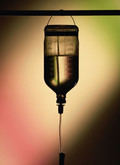Generics
Safety and efficacy of generic tenofir/lamivudine/efavirenz combination
New research shows the safety and efficacy of a generics combination of tenofir, lamivudine and efavirenz in the treatment of HIV-infected patients in Thailand [1].
Overview of research on ‘specific’ policies aimed at generics in 2012
Period: January to August 2012
Countries around the world have embraced generics due to their cost-saving potential. Many governments already have policies in place to promote the use of generic medicines, and as health systems face continuous cost pressures and demands to invest in new technologies, generics can only become more important.
Black-box safety warnings and the future of generic drug liability
Generic medicines currently have no responsibility for adding warnings about adverse effects of their medicines. Despite the US Supreme Court ruling that it was ‘impossible’ to force generics manufacturers to update their labels with the latest warnings, many feel that they have an ethical responsibility to do just that [1].
Ranbaxy not the only Indian generics maker subject to FDA recalls
It seems that Ranbaxy Pharmaceuticals (Ranbaxy) is not the only Indian generics manufacturer who has been subjected to FDA recalls. It now comes to light that Dr Reddy’s Laboratories (Dr Reddy’s) and Aurobindo Pharma (Aurobindo) have also had to recall key generic drugs during 2012.
Overview of research on ‘general’ policies aimed at generics in 2012
Period: January to August 2012
Many governments around the world already have policies in place to promote the use of generic medicines, and with the increasing cost of health care and restrictions on budgets the need for low cost, quality medications can only become more important.
The ethics of generic drug liability
What responsibility should the manufacturers of generic medicines bear for warnings about adverse effects of their medicines? Indeed, what responsibility should be borne by the original manufacturers of these drugs? What happens if an adverse effect is noticed after the drug has been in use for many years? Such questions are being pondered in the US after a recent ruling in which the Supreme Court decided it was ‘impossible’ to force generics manufacturers to update their labels with the latest warnings.
India urged to drop cost-based drug policy
Indian industry trade group the Associated Chambers of Commerce and Industry of India (ASSOCHAM) has urged the Indian Government to drop its cost-based price controls on both brand-name and generic drugs and instead introduce a market-based pricing policy.
Ranbaxy recalls generic atorvastatin in US
Ranbaxy Pharmaceuticals (Ranbaxy) has fallen foul of FDA once again. The Indian generics major announced on its US website that it is conducting a voluntary recall for certain batches of its atorvastatin calcium tablets, a generic version of Pfizer’s blockbuster cholesterol-reducing drug Lipitor.
History and future of pay-for-delay
Pay-for-delay is a constant issue in both the US and Europe. But how did these settlements first come about and how have US courts attitudes towards such deals affected the pharmaceutical market [1].
Alleviating concerns around generic antiepileptic medications
Reports that some patients with epilepsy were more likely to experience seizures and hospitalisation after switching from brand-name drugs to generic alternatives have led to concerns about generic antiepilepsy drugs (AEDs). A recent review, however, argues that the onset of seizures following a switch may be due more to the disruption of normal routine than the choice of medication. The authors suggest that AEDs are relatively safe and effective compared to innovator drugs.













